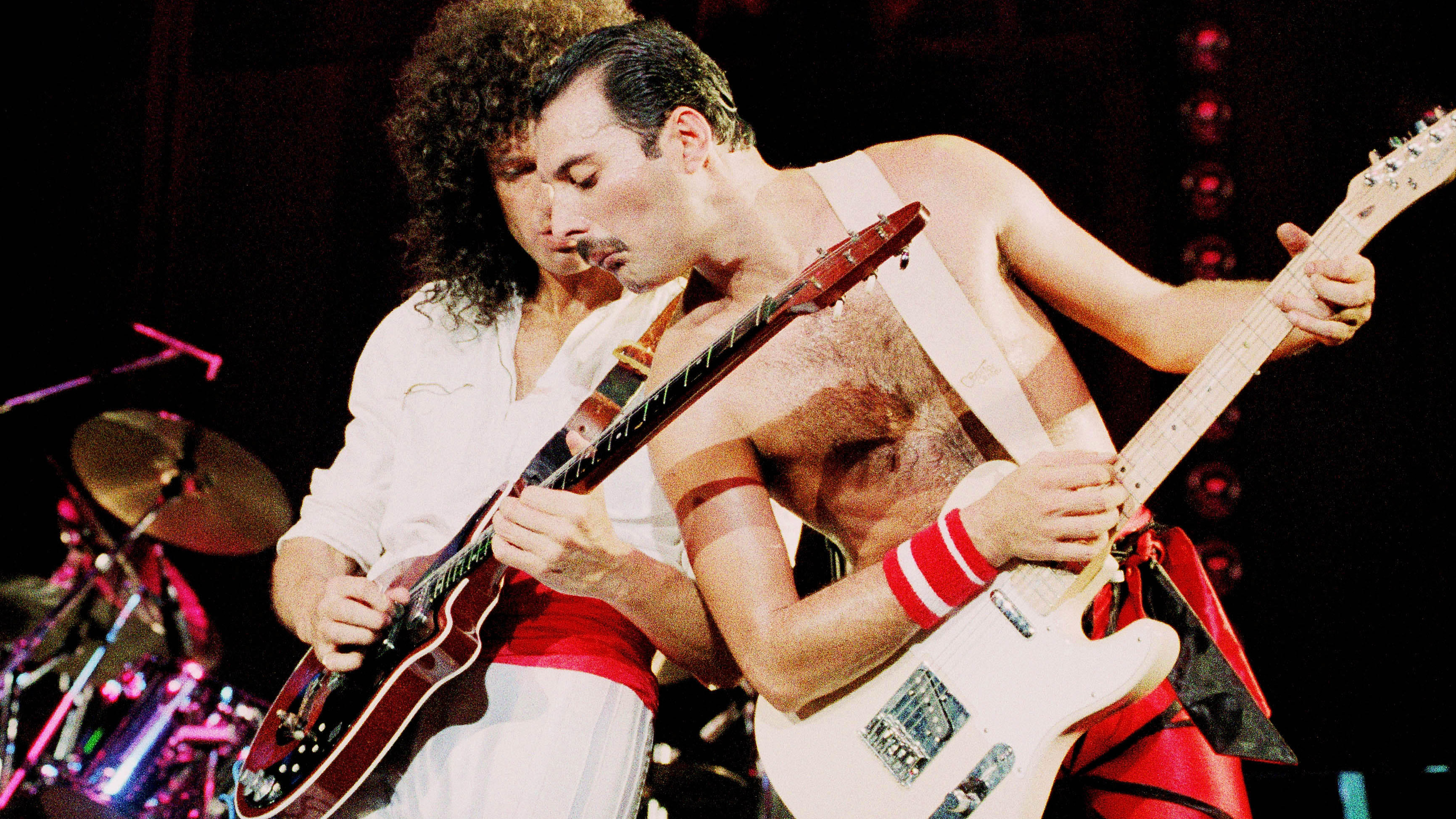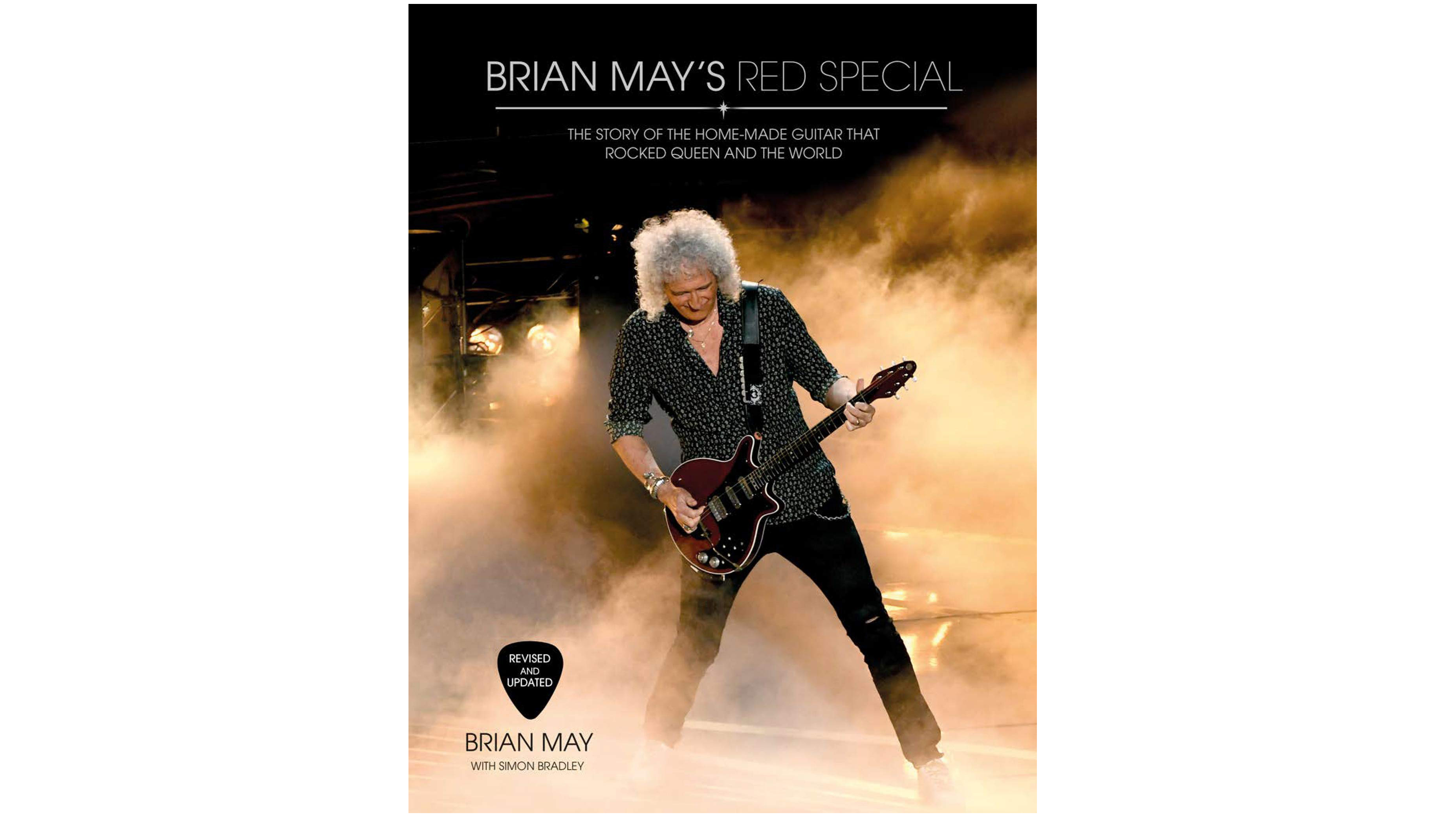5 songs guitarists need to hear by… Brian May
The guitar connoisseurs' guide to the Queen legend

Thirty years on from Freddie Mercury's passing, Queen's legacy is only becoming more potent. And in his creative pairing with guitarist Brian May, we saw one of the greatest dynamics in popular music history evolving.
These days guitarist May is Queen’s somewhat reluctant focal point and although he may not hare about the stage as he did during the seventies, the magnificent tone produced by his home-made guitar and a phalanx of boosted Vox AC30s still bathes massive audiences in its toasty glory, always to the most rapturous of applause. In short, he’s surely anyone’s idea of a guitar hero.
Legendary songs such as Bohemian Rhapsody, We Will Rock You and We Are the Champions have been discussed, dissected and analysed to within an inch of their quavers many times so here we offer a quintet of tunes that, whilst not breathing quite the same level of rarefied air, certainly demonstrate May’s unique approach to both composition and guitar.
1. Last Horizon (Back To The Light, 1992)
Taken from May’s second solo album (the first was 1983’s gloriously self-indulgent Star Fleet Project that featured, amongst others, Eddie Van Halen), Last Horizon is probably the only solo track that’s likely to make it onto a contemporary Queen setlist.
At the time of recording not only was May still coming to terms with the death of Freddie Mercury, but he was also undergoing a crippling crisis of confidence and although this instrumental is mostly in a major key, the underlying melancholy is painfully apparent.
Using his index finger rather than the more customary sixpence to coax softer notes from the strings, he pulls off bend after consummate bend throughout the sweet melody before indulging in a section comprising a guitar orchestration that unashamedly harks back to the good old days.
He spent most of 1993 touring the album, both as headliner and support to Guns N’ Roses, and, as it transpired, redemption of sorts was just around the corner.
Get the MusicRadar Newsletter
Want all the hottest music and gear news, reviews, deals, features and more, direct to your inbox? Sign up here.
2. Stone Cold Crazy (Sheer Heart Attack, 1974)
By their third album Queen were really starting to fire on all cylinders and it was their first to feature songs written by all four band members. In distinct contrast to bassist John Deacon’s inaugural offering, the folksy romp Misfire, Stone Cold Crazy features a riff so heavy that, in 1990, San Francisco thrash heroes Metallica considered it worthy for a cover version.
As well as some expert drumming from Roger Taylor, the song is most notable for its impressively rapid tempo and May used the neck and bridge pickups of the Red Special switched together but out of phase to give a particularly hollow tone for the solo sections.
The delay on parts of the break came courtesy of an Echoplex tape machine that May still owns, one that he customised to produce a far longer delay time than it was designed for by running the magnetic tape along a metal arm he constructed to extend its travel length. It worked like a charm and showed that May’s inventiveness wasn’t limited to the music.
3. Procession (Queen II, 1974)
If you’d gone along to see a Queen show between September 1973 and late 1975, a taped intro of this inspired guitar orchestration would have both welcomed the band on stage and you to the majestic wonders about to unfold.
Modern technology would most likely allow the recording of such a complex piece to be achieved in an afternoon but back in the early seventies each section had to be meticulously and laboriously committed to tape with absolutely no margin for error, technical or otherwise.
May used a small transistor combo built by John Deacon, one that produces an unusually snarky sound, and employed different pickup settings to layer wildly contrasting tones and colours to perfectly recreate the vibe and grandeur of a royal drive-by. It’s a work bordering on genius that’s probably not been bettered and if you’re a rock guitarist who’s yet to hear Procession, we envy you.
4. Sail Away Sweet Sister (The Game, 1980)
Dedicated to "…the sister I never had…" this is a nigh-on perfect example of a Queen album track and, although nowhere near as familiar as its album-mates Play The Game and Save Me, it bears many of the same compositional hallmarks.
Beginning with a dreamy keyboard pad and encouraged by Deacon’s bass, a lonesome piano and May’s mournful vocal precede a bombastic chorus that briskly dissolves into a beautifully emotive acoustic break.
The song soon climaxes, with tubular bells – oh yes! – and a line sung by Mercury clearing the way for a classic May solo that’s a lesson in control and phrasing before everything fades away again, this time for good, accompanied by the sound of waves crashing on a beach. The enduring Queen mantra of ‘if it’s worth doing, it’s worth overdoing’ is applied with gusto here and it’s a great song.
5. Dead On Time (Jazz, 1978)
Rarely have Queen been so frantic and, considering the fractious nature of the recording sessions during which May actually left the band, albeit only for one day, it’s credit to his tenacity that he persuaded his bandmates to rock out to this degree.

Our insider’s guide to emulating the unmistakable style of Queen’s legendary guitarist
Written in the key of F# and egged on by one of rock’s greatest rhythm sections, Mercury positively spits the lyrics while May riffs and shreds away for all he’s worth. The song crescendos to a huge thunderclap, recorded by May and credited to God in the album’s sleeve credits, while Mercury gleefully yells "You’re dead!".
May told Q magazine: “Fat Bottomed Girls was OK, but fairly banal. I thought people would be much more interested in Dead On Time, but it really didn’t get that much airplay.” Hardly surprising considering it was merely a B-side to 1979’s underwhelming Mustapha single that was only released in Spain, Germany and, bizarrely, Bolivia.
Simon Bradley is the co-author of The Red Special with Brian May. A new edition of the book is out now via Carlton Books, including two new chapters, new photography, and additional insight from May throughout.

Simon Bradley is a guitar and especially rock guitar expert who worked for Guitarist magazine and has in the past contributed to world-leading music and guitar titles like MusicRadar (obviously), Guitarist, Guitar World and Louder. What he doesn't know about Brian May's playing and, especially, the Red Special, isn't worth knowing.
“I can write anything... Just tell me what you want. You want death metal in C? Okay, here it is. A little country and western? Reggae, blues, whatever”: Yngwie Malmsteen on classical epiphanies, modern art and why he embraces the cliff edge
“You're by far the best guy that we've tried. I would love to have you in the band”: So why did Trent Reznor turn down Richie Kotzen for Nine Inch Nails?










